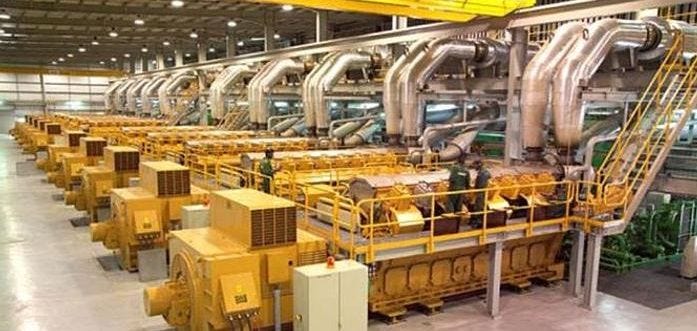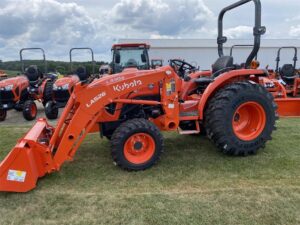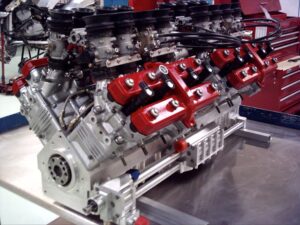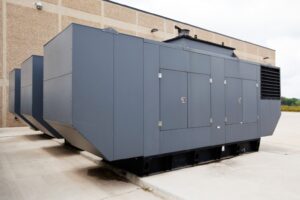If you’ve ever experienced a power outage at home, you know the sudden panic that comes with darkness, dead Wi-Fi, and a silent fridge. That’s where power generators step in. Whether it’s a portable power generator for emergencies or a whole-home electric generator, these machines keep your lights on, your food safe, and your devices charged.
In this guide, we’ll break down everything you need to know about generators, including their advantages, types, uses, and answers to the most common questions. By the end, you’ll be able to confidently decide which generator for home or work is right for you.
What Is a Generator?

A Power Generators is a machine that converts mechanical energy into electrical energy. In simple terms, it gives you electricity when the main power supply fails.
Think of it as your personal backup power station. I remember when a summer storm knocked out power in my neighborhood—I was the only one still enjoying cool air from my fan, thanks to my small home electric generator.
Generator definition in electrical terms: A generator works on the principle of electromagnetic induction, where a conductor moves through a magnetic field to produce electricity.
How Does a Generator Produce Electricity?
This is a common question: How does a generator run without electricity?
The answer is simple. Power Generators don’t create electricity; they convert energy. Inside, an engine burns fuel (gas, diesel, propane, or natural gas), which spins a rotor inside a magnetic field, producing an electrical current.
This is the basic principle of a generator and why it remains one of the most reliable backup power solutions worldwide.
5 Uses of a Generator

- Home Backup Power – Keeps appliances like refrigerators, heaters, and lights running during outages.
- Construction Sites – Portable power generators provide electricity for tools where grid power is unavailable.
- Events & Outdoor Activities – Powering sound systems, lights, or cooking equipment at outdoor gatherings.
- Businesses – Ensuring servers, computers, and critical systems stay online during outages.
- Remote Living & Travel – RVs, camping trips, and cabins all benefit from portable or solar-powered units.
Types of Generators
Understanding the types of generators helps you pick the right one.
1. Portable Generators
- Best for camping, RVs, and temporary outages.
- Run on gasoline or propane.
- Affordable and easy to move.
2. Standby Generators (Whole-House Generators)
- Permanently installed outside your home.
- Kick in automatically when power goes out.
- Run on natural gas or propane.
- Can power an entire house (including AC units and large appliances).
3. Inverter Generators
- Smaller, quieter, and fuel-efficient.
- Produce clean electricity for sensitive electronics.
- Great for laptops, phones, and medical devices.
4. Solar Generators
- Use solar panels to store energy in a battery.
- Eco-friendly and silent.
- Great for light home use or camping, but limited for heavy appliances.
Advantages of Power Generators
- Reliable Backup: Never worry about spoiled food or a powerless home office again.
- Portable Energy: Perfect for outdoor adventures and work sites.
- Versatile Power Options: Gas, diesel, propane, or solar.
- Protects Your Home: Keeps sump pumps, heaters, and AC units working during blackouts.
- Peace of Mind: Security systems and medical devices stay powered no matter what.
Choosing the Right Power Generators Size
One of the most common concerns is what size generator do I need for my house?
- A 7.5 kVA generator can usually power a small home with a fridge, lights, and fans.
- A 10 kVA generator may run a medium-sized home, including multiple AC units.
- A 22kW Generac generator can power large homes or small businesses continuously.
If you’re unsure, list out your appliances’ wattage, add them up, and choose a generator that provides at least 20% more power than your total need.
FAQs About Power Generators
Q1. What are the three types of generators?
- Portable, standby, and inverter generators.
Q2. What does a power generator do?
It converts mechanical energy into electrical energy to power devices and appliances.
Q3. How many types of power generators are there?
Four main types: portable, standby, inverter, and solar.
Q4. What type of generator can run a house?
Standby or large portable generators (10kVA and above).
Q5. How long can a generator run continuously?
Diesel generators: 24–72 hours. Propane: 200+ hours (with large tanks).
Q6. Can solar panels power a generator?
Yes, solar panels can charge solar generators, but they can’t fuel traditional gas/diesel generators.
Q7. Is the generator AC or DC?
Most home generators produce AC electricity, though DC generators exist for specific uses.
Q8. What size generator to run a 1500 sq ft house?
Typically 10–12 kW.
Q9. How long do generators last?
With proper maintenance, 10–20 years or 10,000–30,000 hours of use.
Q10. Which is better, a generator or solar?
For long-term, eco-friendly use, solar is better. For reliable, high-power backup, generators are best.
Final Thoughts

Whether you’re looking for a generator for home, a portable power generator for travel, or researching the best power generators for sale, the key is knowing your needs and matching the right type to your lifestyle.
Personally, after trying both portable and standby options, I wouldn’t trade my home electric generator for anything—it’s the reason I never panic when the lights go out.
If you’re ready to explore your options, check out our guide to the best welding generators and find a machine that keeps your life running smoothly.




